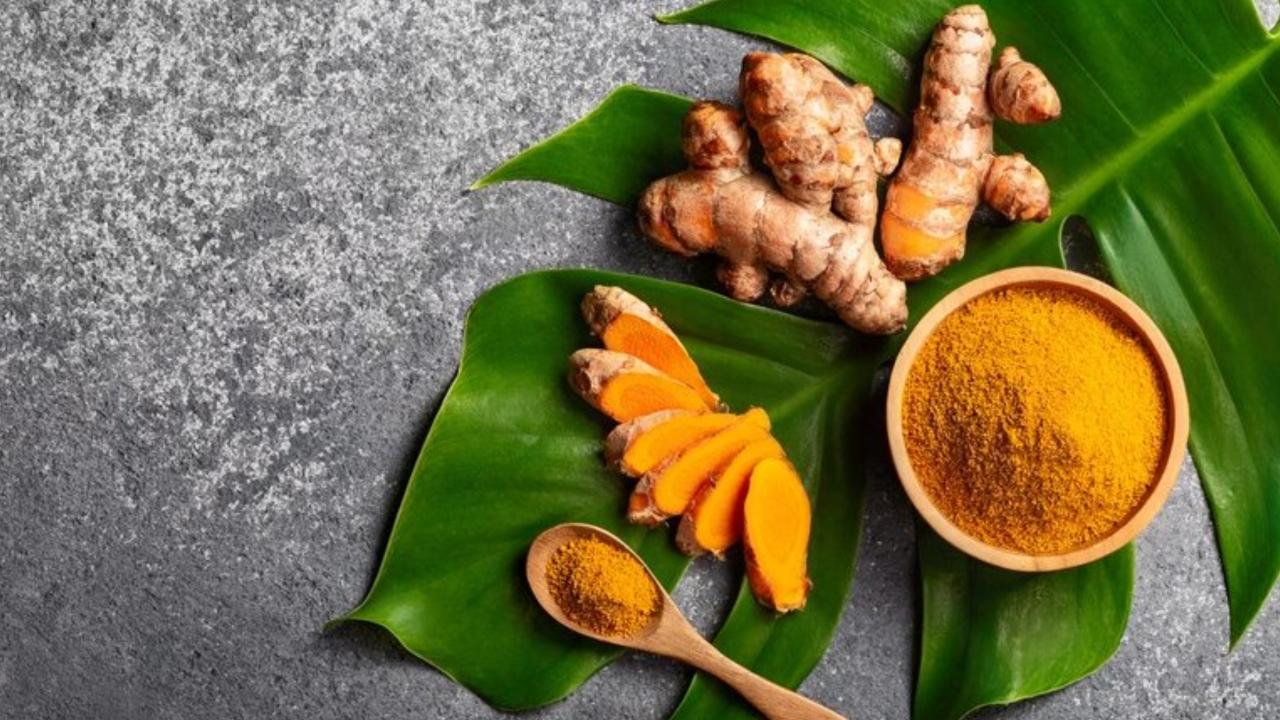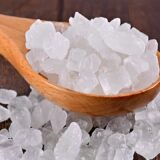Benefits of Turmeric: Ayurvedic Remedy for Many Ailments
Turmeric (Curcuma longa), commonly known as Haldi in India, is a vibrant yellow spice widely used in cooking, medicine, and religious rituals. Beyond its culinary role, turmeric has a profound legacy in Ayurveda, the ancient Indian system of holistic medicine. It is considered a Rasayana (rejuvenating herb) that supports overall health, balances the body’s energies (doshas), and promotes longevity.
In Ayurveda, turmeric is referred to as “Haridra,” which means “the one that enhances health.” Its significance stems from its remarkable therapeutic properties, attributed to its active component, curcumin. This article delves deep into the Ayurvedic perspective of turmeric, its health benefits, uses, and practical applications in daily life.
Ayurvedic Properties of Turmeric
To understand the significance of turmeric in Ayurveda, it is essential to examine its fundamental properties.
- Rasa (Taste): Bitter (Tikta), Astringent (Kashaya), Pungent (Katu)
- Guna (Qualities): Light (Laghu), Dry (Ruksha)
- Virya (Potency): Heating (Ushna)
- Vipaka (Post-digestive Effect): Pungent (Katu)
- Effect on Doshas: Turmeric helps balance all three doshas—Vata, Pitta, and Kapha—though it is especially effective for Kapha disorders.
These attributes make turmeric a versatile herb for treating a wide range of conditions, from digestive issues to inflammatory diseases.
Health Benefits of Turmeric in Ayurveda
1. Supports Digestive Health
Turmeric is considered a digestive stimulant in Ayurveda. Its heating nature (Ushna virya) ignites the digestive fire (Agni), enabling better digestion and assimilation of nutrients.
- Treats Indigestion: Turmeric helps combat bloating, flatulence, and loss of appetite.
- Reduces Toxins (Ama): By enhancing metabolism, turmeric aids in the removal of toxins from the digestive system.
How to Use: Mix a pinch of turmeric powder with warm water and consume before meals to promote digestion.
2. Boosts Immunity
Turmeric is a natural immune booster and acts as a protective shield against seasonal illnesses. Its curcumin content enhances the body’s ability to fight infections.
- Antimicrobial Properties: It has antibacterial, antiviral, and antifungal effects.
- Rejuvenating (Rasayana): Regular use of turmeric strengthens the immune system, making it resilient to diseases.
How to Use: Prepare a kadha (herbal decoction) with turmeric, ginger, and tulsi for immunity.
3. Promotes Skin Health
Turmeric is known as a Varnya (complexion enhancer) in Ayurveda. Its external and internal use purifies the blood and promotes glowing skin.
- Treats Skin Disorders: Turmeric is highly effective in treating acne, eczema, psoriasis, and other skin conditions.
- Reduces Scars and Blemishes: Its anti-inflammatory and healing properties reduce skin pigmentation and scars.
How to Use: Apply a paste of turmeric and sandalwood powder on the skin for a natural glow.
4. Anti-inflammatory Properties
One of the most celebrated benefits of turmeric is its ability to reduce inflammation. It is commonly used to alleviate pain and swelling associated with arthritis, injuries, and chronic inflammatory conditions.
- Relieves Joint Pain: Turmeric’s heating property reduces Kapha-induced swelling and pain.
- Supports Recovery: Its anti-inflammatory nature accelerates wound healing and recovery from injuries.
How to Use: Mix turmeric powder with mustard oil and apply it to sore joints for relief.
5. Supports Liver Health
The liver, known as the “seat of metabolism” in Ayurveda, greatly benefits from turmeric’s detoxifying properties.
- Detoxification: Turmeric cleanses the liver, flushing out toxins and improving its function.
- Manages Liver Disorders: It is beneficial in treating jaundice (Kamala), fatty liver, and other hepatic conditions.
How to Use: Add turmeric to warm water with a few drops of lemon juice and consume daily.
6. Regulates Blood Sugar Levels
Turmeric’s ability to balance Kapha dosha makes it beneficial for managing diabetes and blood sugar levels.
- Improves Insulin Sensitivity: It enhances glucose metabolism and reduces insulin resistance.
- Prevents Complications: Turmeric helps prevent oxidative stress and inflammation linked to diabetes.
How to Use: Mix turmeric with fenugreek powder and consume it with water to support glucose metabolism.
7. Promotes Mental Health
Ayurveda recognizes turmeric as a Medhya Rasayana (brain tonic) that enhances cognitive function and mental clarity.
- Reduces Stress and Anxiety: Turmeric has adaptogenic properties that help the body cope with stress.
- Enhances Memory: It improves focus and reduces the risk of neurodegenerative diseases like Alzheimer’s.
How to Use: Drink turmeric tea infused with Brahmi for enhanced mental clarity.
8. Improves Respiratory Health
Turmeric is often recommended for managing respiratory ailments such as colds, asthma, and bronchitis.
- Clears Congestion: Its heating nature expels excess mucus, relieving congestion.
- Relieves Cough: Turmeric soothes the throat and reduces coughing.
How to Use: Mix turmeric and honey to prepare a natural remedy for cough.
Turmeric in Ayurvedic Formulations
Turmeric, known for its numerous health benefits, is used in various Ayurvedic formulations. Here are some key formulations that incorporate turmeric:
1. Haridra Khanda
This classical Ayurvedic remedy combines turmeric (Haridra) with other herbs to address skin allergies, itching, and respiratory conditions. It is particularly beneficial for calming inflammation and detoxifying the body.
2. Manjishtadi Kwath
This herbal decoction, used to purify the blood, includes turmeric as one of its key ingredients. It is effective for treating acne, and skin blemishes, and promoting a clear complexion by improving overall skin health.
3. Turmeric Oil
Turmeric oil is often used in Ayurvedic massages. It is known for its anti-inflammatory properties, making it helpful for relieving joint pain. Additionally, it can improve skin texture and reduce the appearance of scars and blemishes.
3. Turmeric Capsules or Tablets
A modern take on traditional Ayurvedic remedies, turmeric capsules or tablets provide a concentrated dose of curcumin, the active compound in turmeric. They are commonly used for their anti-inflammatory and antioxidant properties, supporting joint health, digestion, and overall well-being.
These formulations highlight the versatility of turmeric in Ayurvedic medicine for both internal and external applications.
Traditional Uses of Turmeric in Ayurveda
Turmeric has been an essential part of traditional Ayurvedic practices for centuries. Below are some common ways it is used in Ayurveda for healing and wellness:
1. Golden Milk (Haldi Doodh)
This popular Ayurvedic drink is revered for its ability to relieve colds, coughs, and joint pain due to turmeric’s anti-inflammatory and immune-boosting properties.
Recipe: Mix 1/4 teaspoon of turmeric powder with warm milk and a pinch of black pepper (to enhance curcumin absorption). Sweeten with honey or jaggery as desired. Drinking this daily is believed to provide numerous health benefits, including improved immunity.
2. Turmeric Paste for Skin
Known as a natural beauty remedy, turmeric paste is commonly used to treat acne, blemishes, and dark spots. Its antibacterial properties help cleanse the skin and promote healing.
Recipe: Combine turmeric powder with milk or rose water to form a paste, then apply it directly to the skin. Let it sit for 10-15 minutes before washing off. Regular use is said to brighten and purify the skin.
3. Turmeric in Cooking
In Ayurveda, turmeric is a staple spice used in cooking. It not only enhances the flavor of dishes but also promotes digestion and strengthens the immune system. Turmeric is believed to balance all three doshas (Vata, Pitta, and Kapha) when added to meals, making it beneficial for overall health.
4. Turmeric and Honey
A simple yet effective remedy for a sore throat or cough, this combination helps soothe irritation while offering anti-inflammatory and antibacterial benefits.
Recipe: Mix turmeric powder with honey and take it directly or dissolve in warm water. This remedy is widely used to relieve throat discomfort and promote healing.
These traditional uses of turmeric illustrate its versatility and significant role in Ayurveda for both internal health and external beauty.
Scientific Validation of Turmeric’s Benefits
Modern scientific research has provided substantial validation for many of the traditional health benefits of turmeric, particularly due to its active compound, curcumin. Here are some key areas where turmeric has been scientifically supported:
1. Anti-inflammatory
Curcumin, the primary active compound in turmeric, has been shown to inhibit various inflammatory markers in the body. It works by blocking enzymes and proteins involved in inflammation, which helps to reduce chronic inflammation associated with conditions such as arthritis, inflammatory bowel disease, and more.
2. Antioxidant
Turmeric is a powerful antioxidant that combats oxidative stress in the body. Oxidative stress is a key factor in the development of many chronic diseases, including heart disease, diabetes, and neurodegenerative conditions like Alzheimer’s. Curcumin helps neutralize free radicals, reducing cellular damage and lowering disease risks.
3. Anti-cancer Properties
Numerous studies suggest that curcumin may help prevent the growth of cancer cells by inhibiting the proliferation of certain types of tumors. It has shown promise in blocking pathways involved in cancer cell growth, metastasis, and angiogenesis (formation of new blood vessels for tumors). Although more research is needed, turmeric’s potential in cancer prevention and treatment is a significant area of study.
4. Cardiovascular Health
Turmeric supports heart health by improving various cardiovascular risk factors. It has been shown to reduce cholesterol levels, prevent the oxidation of LDL cholesterol (a major contributor to plaque buildup in arteries), and improve blood circulation. These effects contribute to a reduced risk of heart disease, stroke, and related conditions.
These scientific findings reinforce turmeric’s long-standing reputation in traditional medicine and its continued use for promoting overall health and wellness.
Precautions and Contraindications
While turmeric is generally safe, it is essential to use it in moderation.
- Excessive Heating: Its heating nature may aggravate Pitta dosha in sensitive individuals.
- Pregnancy and Lactation: Consult a healthcare practitioner before consuming medicinal quantities of turmeric.
- Drug Interactions: Those on blood thinners or diabetic medications should exercise caution due to turmeric’s effects on blood clotting and glucose levels.
Turmeric, or Haldi, is a golden gem of Ayurveda, offering a multitude of health benefits. Its holistic properties make it an indispensable herb in Ayurvedic medicine, promoting physical, mental, and emotional well-being.
FAQs
Q1: What is the role of turmeric in Ayurveda?
In Ayurveda, turmeric (Haldi) is considered a powerful herb that balances all three doshas—Vata, Pitta, and Kapha. It is mainly used for its anti-inflammatory, detoxifying, and antioxidant properties. Turmeric supports digestive health, purifies the blood, enhances skin health, and boosts immunity.
Q2: How does turmeric help with skin conditions in Ayurveda?
Turmeric is commonly used in Ayurveda to treat skin conditions like acne, eczema, and psoriasis. Its antibacterial and anti-inflammatory properties help reduce inflammation, fight infection, and promote healing. Turmeric is applied topically in the form of pastes, oils, and masks for skin health.
Q3: What are the traditional Ayurvedic uses of turmeric for digestive health?
Turmeric is valued in Ayurveda for its ability to stimulate digestive fire (Agni), which is essential for proper digestion. It helps alleviate bloating, indigestion, and gas. Turmeric also aids in the absorption of nutrients and is used in Ayurvedic formulations to treat conditions like acid reflux and constipation.
Q4: How is turmeric used to enhance joint health in Ayurveda?
Due to its anti-inflammatory properties, turmeric is used in Ayurvedic remedies for joint health. It is commonly found in oils and pastes used for massage to relieve joint pain, stiffness, and inflammation, particularly in conditions like arthritis. It can also be taken internally to reduce inflammation and improve mobility.
Q5: What are some popular Ayurvedic preparations containing turmeric?
Some common Ayurvedic preparations with turmeric include Golden Milk (Haldi Doodh), which is a drink made with turmeric and warm milk to help with colds, coughs, and joint pain; Haridra Khanda, a formulation for skin allergies and respiratory issues; turmeric oil for massages to improve skin texture and alleviate pain; and Manjishtadi Kwath, a blood-purifying decoction that includes turmeric to promote clear skin.
Q6: Can turmeric be used for weight management in Ayurveda?
Yes, turmeric is sometimes used in Ayurveda for weight management. Its anti-inflammatory properties may help support metabolism, reduce inflammation, and promote digestion, all of which are important for maintaining a healthy weight. Turmeric is also believed to detoxify the body, aiding in weight loss.
Q7: How is turmeric used in Ayurvedic beauty treatments?
Turmeric is a staple in Ayurvedic beauty treatments. It is often combined with milk, rose water, or honey to create masks or pastes that brighten the skin, reduce acne, and heal blemishes. Its antimicrobial and anti-inflammatory effects make it effective for treating skin infections and promoting a healthy complexion.
Q8: Is there scientific evidence to support turmeric’s benefits in Ayurveda?
Yes, modern science has validated many of turmeric’s traditional uses. Research has confirmed its anti-inflammatory, antioxidant, anti-cancer, and cardiovascular benefits, thanks to curcumin, its active compound. Studies continue to explore turmeric’s potential in treating various health conditions, including chronic diseases and skin issues.
Q9: How can I incorporate turmeric into my daily Ayurvedic routine?
Turmeric can be incorporated into your daily routine through Golden Milk, turmeric capsules or tablets for internal health benefits, topical applications like turmeric paste for skin care, or adding turmeric to cooking for enhanced flavor and digestive support. It’s best to consult with an Ayurvedic practitioner to determine the right dosage and form based on your individual needs.
Q10: Are there any precautions when using turmeric in Ayurveda?
While turmeric is generally safe, it should be used in moderation. Excessive use may cause digestive upset or interact with medications, particularly blood thinners. Pregnant and breastfeeding women should consult a healthcare provider before using high doses of turmeric. It’s always advisable to follow Ayurvedic guidance or consult a professional when adding turmeric to your routine.
Resources:


























very useful post
Aside from the turmeric uses in the culinary world, there are other turmeric benefits that people are not often aware off.